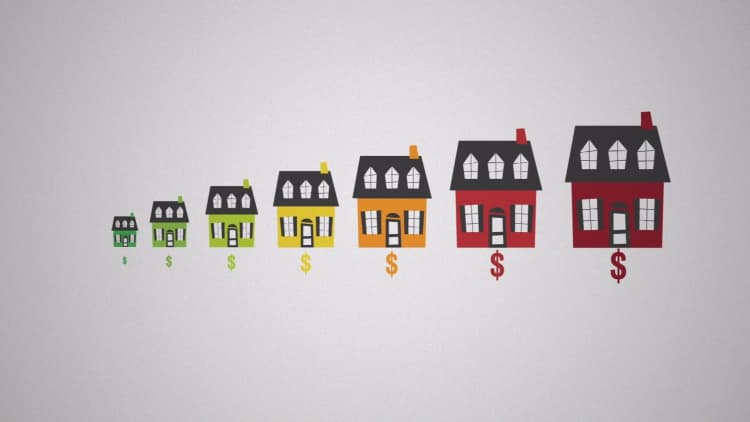Demand for mortgages weakened last week, despite a brief respite from rising interest rates.
Total mortgage application volume fell 1.9 percent, seasonally adjusted, from the previous week, according to the Mortgage Bankers Association. Volume was 5.5 percent lower than the same week one year ago.
Refinancing led the way down. The share of those applications fell to the lowest level in 10 years, down 2 percent for the week and off nearly 13 percent from a year ago. Refinances made up just 38 percent of total loan activity.
With interest rates higher than they were a year ago, and lending still relatively tight, there is less and less incentive for borrowers to refinance. For those who want to take cash out of their homes, more are now turning to second, home equity loans, rather than refinancing their primary mortgages and subsequently losing their rock-bottom rates.
Last week, the average contract interest rate for 30-year fixed-rate mortgages with conforming loan balances ($453,100 or less) decreased to 4.66 percent from 4.69 percent, with points increasing to 0.46 from 0.43 (including the origination fee) for 80 percent loan-to-value ratio loans.
Potential buyers, who are less sensitive to weekly rate moves, are either not enticed by what they're finding on the market this spring, or, more likely, they can't afford it. Mortgage applications to purchase a home fell 2 percent for the week and were 0.5 percent lower than a year ago.
The drop is surprising, given that this is the heart of the spring housing season, and a stronger economy would suggest higher demand. Sentiment for buying, however, has been volatile, falling sharply in February and then bouncing back in March, according to a monthly survey by Fannie Mae.
"The primary driver of this month's increase was the sizable rise in the net share of consumers who think it's a good time to buy a home, which returned the indicator to its year-ago level," wrote Fannie Mae's chief economist Doug Duncan. "On the whole, a slight majority of consumers continue to express optimism regarding the overall direction of the economy."
Buyers may have been spooked last week by exceptional volatility in the stock market, due to the potential for a trade war with China.
More likely, however, they are turning away from what has become an extremely competitive and pricey housing market. When an early spring market is this lean and this expensive, some buyers choose to wait until later in the season, hoping to wait out the crowds and find a better deal.
WATCH: How to win a bidding war when buying a home



